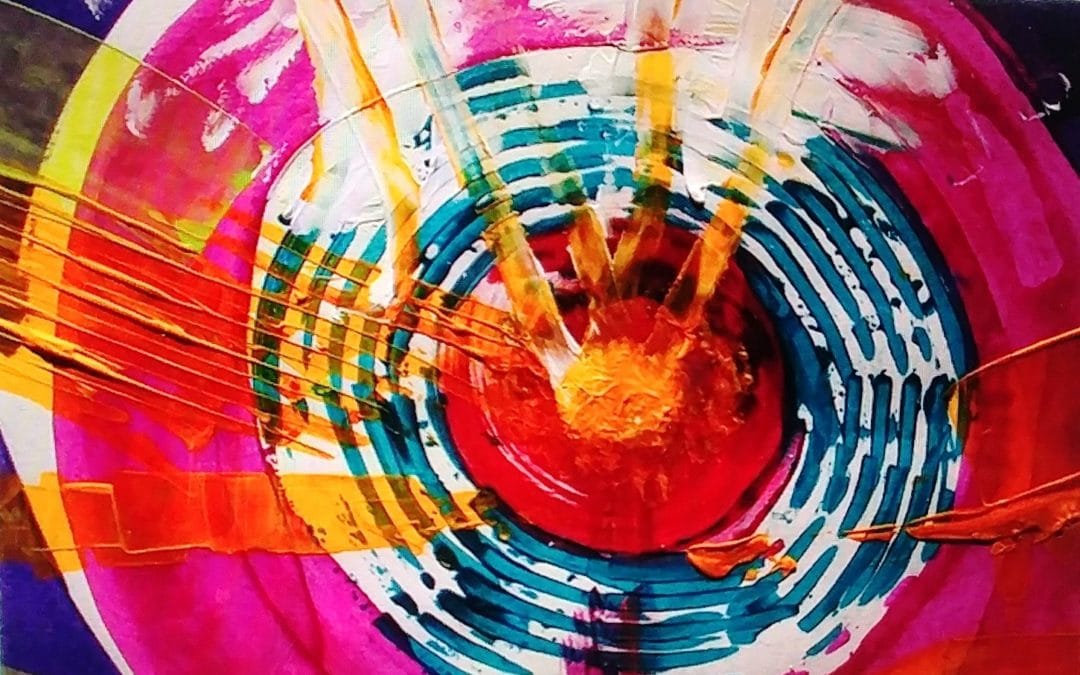
Photo by stux
For the month of April, I am happy to welcome a contributing post from the founder of RecoveryPride.org. Michelle Peterson is the founder and manager of RecoveryPride.org, an organization that seeks to de-stigmatize substance abuse and those who struggle with addiction. She believes the journey to sobriety should not be one of shame but of pride. Her mission is aligned with that of RecoveryPride- http://Recoverypride.org, which is to celebrate sobriety and those who achieve it. Thank you Michelle for your contributing post this month.
The Benefits of Art and Music Therapy for Substance Abusers (and Others Who Struggle with Mental Health Challenges)
If I asked you to list effective treatments for addiction, paintbrushes and drumsticks probably wouldn’t immediately spring to mind. But a growing body of evidence is showing that art and music therapy might be helpful for people with substance abuse disorders. Although psychotherapists were employing the healing power of art back in the 1940s, the practice has seen a renaissance of its own in recent years, with art therapists now offering their services all over the world. Here’s a little more about this treatment and how it can help treat addiction.
What Does Art Therapy Involve?
In art therapy, you work in group settings on creative activities like painting, drawing, and sculpting. Painting in particular is a common and effective form of art therapy. “Whether it’s watercolor, acrylic, or oils,” says The Treehouse, “Painting is a wonderful way for those suffering with addiction to cope. Not only is painting a quiet, soothing activity, it allows an artist to bring out whatever emotions they’re dealing with onto the paper or canvas and leave it there. Because drugs and alcohol can dull a person’s emotions, painting can bring you back to yourself, little by little.”
Talent is not required — art therapy is not about producing something “good.” It’s about connecting with your emotions, and expressing what you are feeling. Sometimes it’s just easier to express yourself with a paintbrush than it is with words.
Music Therapy
If painting is not your thing, you could give music therapy a try instead. The format is very similar — you will get together in a group and play music together. Again, you won’t be judged on your performance, and you’ll be given a simple part to play in the therapeutic symphony that you all produce. The reason this works lies in the brain. Drug and alcohol abuse can cause imbalances in some brain chemicals, and can decrease activity in the areas of the brain that help you think your actions through. This is why substance abusers often act impulsively. Music therapy is thought to work by producing beneficial changes in the brain, which help to restore this chemical balance, and reduce impulsive behaviors.
Five Cornerstones — Why Art Therapy Works
According to research published in The Arts in Psychotherapy, there are five key reasons that art therapy works:
1.) First, it increases self-perception, helping you to recognize and understand your emotions.
2.) Second, it fosters a stronger self-image, bringing clarity to conflicting emotions and thoughts.
3.) Third, by providing a space where you can express your emotions, it helps you gain control over them, ultimately boosting your self-control.
4.) Fourth, it promotes positive changes in behavior toward other people, which may be a consequence of sharing and opening up with others in group sessions.
5.) Finally, the nonverbal expression of your experiences, paradoxically, helps you put them into words.
Combining Art and Music Therapy with Other Treatments
These five cornerstones are not only beneficial in themselves, but they may have a more powerful effect when combined with other recovery practices. A 2017 paper published in the Journal of Addictions Nursing found that art therapy works particularly well in combination with 12-step programs. This is especially the case in the first step, as art therapy helps to break down your resistance and help you accept what you are going through. Art therapy can promote a positive image of recovery, and this can help reduce resistance to other forms of therapy you might be undergoing.
You have a better chance of recovery from addiction when you use several forms of treatment and, importantly, maintain them over the long term. This might be another key behind the appeal of art therapy — it’s fun. Of course, it is still therapy, and there will be an aspect of exploring difficult emotions. But, due to its engaging nature, you may find you stick to it over the long term. If this sounds good to you, why not give it a try?
Michelle Peterson
References: in the 1940s-https://psychcentral.com/blog/5-quick-facts-about-art-therapy/
Painting - http://www.treehouserehab.org/art-therapy-and-addiction/
changes in the brain -
https://people.uwec.edu/rasarla/research/Addictions/index.htm
five key reasons -
https://www.psychologytoday.com/blog/arts-and-health/201608/why-art-therapy-works
2017 paper - https://www.ncbi.nlm.nih.gov/pmc/articles/PMC4268880/
stux- https://pixabay.com/en/art-therapy-therapeutic-discipline-230046/
|
As an addendum, I recently saw an article in the Orlando Sentinel about three local hospitals (Florida Hospital, Orlando Health and Nemours) that have developed creative arts therapies programs that have shown to be successful (through data and patient feedback) that patients feel better after engaging in art or music therapy. Research shows that arts therapies tend to reduce patients’ anxiety, depression, and pain and help to improve their quality of life. These programs have shown promise in helping patients who have Alzheimer’s Disease, PTSD, cancer and dementia. My thanks again to Michelle for this interesting and informative article on the benefits of music and art therapy for substance abusers and those who struggle with addiction.
Warmly,
Linda Cook, LMHC















